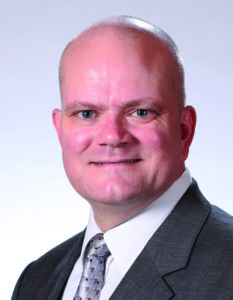
Charles Caldwell, Director of HR, ESF

Caldwell shared some of his thoughts on what the previous speakers had discussed, such as forward contribution where variable pay is not just based on past contributions, but projected future contributions, as well as what tools drive engagement and how we look at feedback and review.
Going back to the root of the workforce warrants a look at anthropology—economic growth creates population growth. In that regard, millennials are projected to make up three quarters of the workforce by 2025. However, more people will be retiring as a result of an ageing population around the globe with the exception of Africa and the Middle East.
In contrast, the American population’s ageing is actually slowing down, according to the latest figures Caldwell presented. He presented a case where demographers found that where companies and countries are doing the most for diversity, birth rates are stabilising, highlighting the scientific and economic importance of improving diversity in companies.
Diversity naturally doesn't only include gender. Looking at different generations, there can be a bit of disparity between how managers perceive their message to be received and how it’s actually received. For example, a Gen X or baby boomer manager might prefer a certain leadership style that could be wildly unpopular with a millennial. As research points out, Caldwell stated, different generations have different world views.
“Most leaders and managers look at talent through their own world view, not through a matrix. The same is true for employees,” he said.
For example, millennials highly value Corporate Social Responsibility as a key characteristic of the companies they want to work for. They want a sense of purpose, commitment to an organisation’s culture and what they stand for. Future and current generations have a vastly different outlook than a previous generation, due to ever-changing circumstances. And it’s this look at the past, present, but most importantly at the future that allows us to grow as a people, and paves to way to better HR, Caldwell concluded.




